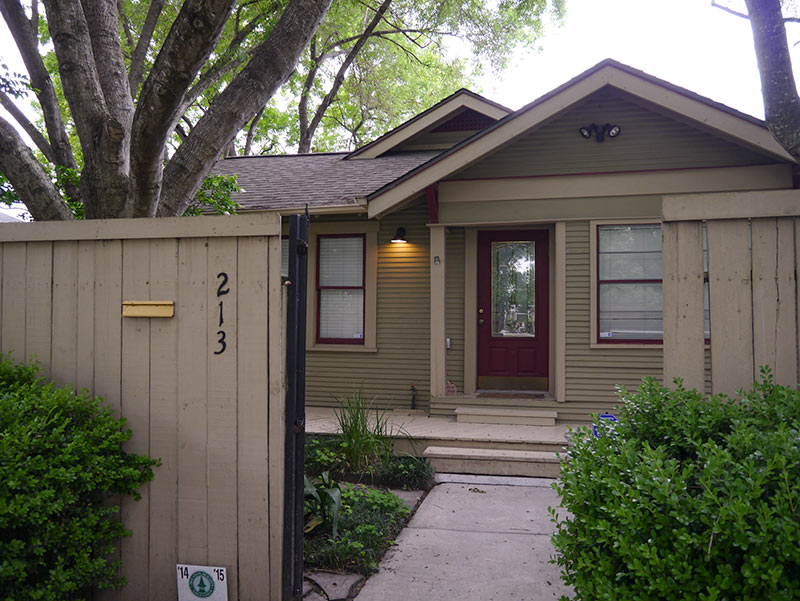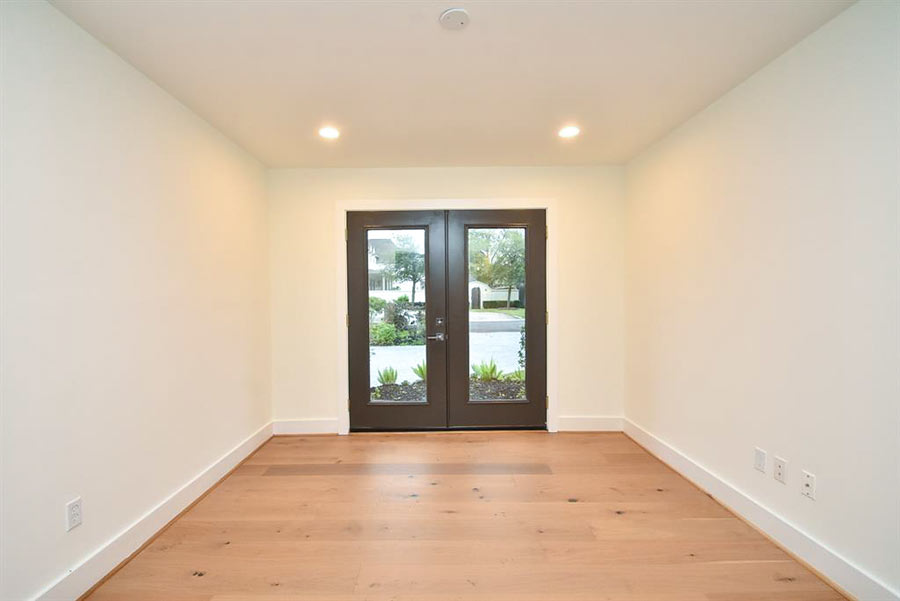$150 HOUSE SELLER EXPECTS TO REFUND 500 IDENTICAL OFFERS  The real estate agent who’s been trying to sell his Heights bungalow for $150 tells reporter Paul Takahashi that — barring an “incredible surge” of new applications and fees before the June 13 deadline — he’ll be refunding the approximately 500 $150 offer fees he’s received so far for the property. For now, he says, he’s organizing his emails to filter out the more than 1,500 essays he received from would-be homebuyers who somehow got the idea that Wachs would sell them the 2-bedroom, 1-bath property even if they didn’t submit the required fee from the 500 or so who followed his instructions. All that sorting is “a time-consuming and boring” task, he tells Takahashi. Wachs had hoped the application fees would add up to the unspecified amount between $265K and $550 he figures his family’s home at 213 E. 23rd St. is worth. [Houston Business Journal; previously on Swamplot] Photo: $150 House
The real estate agent who’s been trying to sell his Heights bungalow for $150 tells reporter Paul Takahashi that — barring an “incredible surge” of new applications and fees before the June 13 deadline — he’ll be refunding the approximately 500 $150 offer fees he’s received so far for the property. For now, he says, he’s organizing his emails to filter out the more than 1,500 essays he received from would-be homebuyers who somehow got the idea that Wachs would sell them the 2-bedroom, 1-bath property even if they didn’t submit the required fee from the 500 or so who followed his instructions. All that sorting is “a time-consuming and boring” task, he tells Takahashi. Wachs had hoped the application fees would add up to the unspecified amount between $265K and $550 he figures his family’s home at 213 E. 23rd St. is worth. [Houston Business Journal; previously on Swamplot] Photo: $150 House





What a stupid waste of time for all involved.
Its sad when a ponzi scheme goes bad…
I’m not so sure the whole process was legal in the first place. The Texas Charitable Raffle Enabling Act from 1990 only permits qualified non-profit organizations to run raffles that generate revenue for the chance at a prize. Even if the seller here was somehow qualified, section 2002.056 (b-1) of the Act explicitly limits the value of a residential property prize at no more than $250,000.
Maybe there are some legal loopholes that would allow this but, at face value, it seems to violate Texas law.
Here’s the text of the Act for those who care: http://www.statutes.legis.state.tx.us/Docs/OC/htm/OC.2002.htm
I don’t see where in the original article he stated that he need a minimum number of applications/$150 checks or else. Seems like he could be sued if he simply refunds the money. For all intents and purposes, he is to chose the winner among the applications with checks he received and those that submitted the application and check would be in a sort of lottery after the deadline passes. Meaning, yes, they would be eligible to be chosen to receive the house for the $150 they put in and RISKED. That he did not meet his dream funding target is a non-issue, was his own risk, and he seems to be lined up to lose.
The article says he wants to move to montrose to be closer to his kid’s pre-school. The house is by 20th street up yale so it isn’t really that far away from montrose – 15 minutes tops. With a realtor’s flex schedule, that shouldn’t be a problem. They will never get that yard in montrose or the walkable city experience by 20th.
He could have simply setup a site where you type in the essay (or paste it in). It checks for required lenght (rage of words). And you submit it along with paying the fee all online.
.
The essays that were submitted (and they couldn’t be without payment) would be e-mailed to him to review.
.
I think the idea is stupid — but if you’re going to do it, take advantage of technology vs. opening 100’s of envelops or reading email blasts like its 1992
SM: With the note that I think it was a dumb idea (though also noting that I don’t think it should be illegal – none of the governments business how someone decides to sell their home), I believe he put some disclaimer that if he didn’t get $x in essay fees he would cancel the sale and return the funds. SO while there was risk in sending the $150, part of the risk assessment someone had would be that not enough offers would come in and funds would be returned.
.
If he said “I’m going to sell it no matter what”, then yeah, he should be bound to that. I also think he’d have gotten a lot more if people knew he was committed to doing it.
Typical do-gooder. They were concerned that low income home buyers were priced out of The Heights, but they weren’t going to take the hit.
It was a great idea! Execution was unfortunate… Mostly since it was a two-step process 1) submit essay 2) make payment. Seems logical, but it required more effort and left the essay submitter wondering it their payment ever got tied to their “anonymous” essay since the two steps were independent of one another. It’s possibly many people assumed they’d paid when they hadn’t? I kind of want him to just start again, and make it a one step process with something simple like PayPal (vs. Dwolla? what the heck was Dwolla?) or credit card info. I feel like it might have more traction and appeal!
I agree the government shouldn’t tell you how to sell your house, within reason.
This was a raffle, plain and simple. Unless it’s for charity, you just can’t do that.
Love it when schemes blow up on the perpetrator.